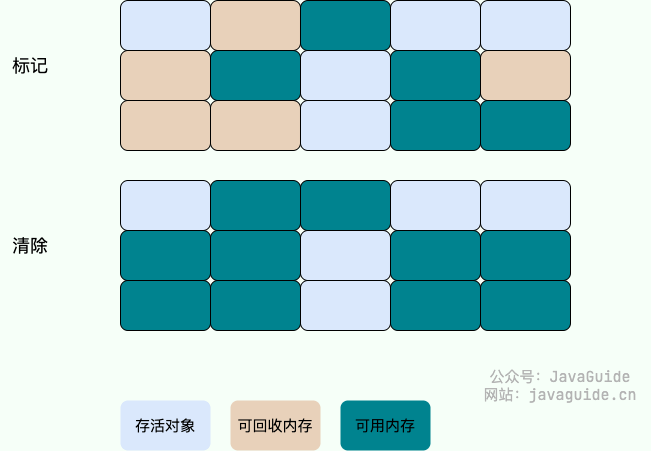mirror of
https://github.com/Snailclimb/JavaGuide
synced 2025-08-01 16:28:03 +08:00
Compare commits
1 Commits
1def2a3711
...
3501c6426b
| Author | SHA1 | Date | |
|---|---|---|---|
|
|
3501c6426b |
@ -159,22 +159,19 @@ public class ArrayList<E> extends AbstractList<E>
|
||||
* @param minCapacity 所需的最小容量
|
||||
*/
|
||||
public void ensureCapacity(int minCapacity) {
|
||||
// 如果不是默认空数组,则minExpand的值为0;
|
||||
// 如果是默认空数组,则minExpand的值为10
|
||||
//如果是true,minExpand的值为0,如果是false,minExpand的值为10
|
||||
int minExpand = (elementData != DEFAULTCAPACITY_EMPTY_ELEMENTDATA)
|
||||
// 如果不是默认元素表,则可以使用任意大小
|
||||
// any size if not default element table
|
||||
? 0
|
||||
// 如果是默认空数组,它应该已经是默认大小
|
||||
// larger than default for default empty table. It's already
|
||||
// supposed to be at default size.
|
||||
: DEFAULT_CAPACITY;
|
||||
|
||||
// 如果最小容量大于已有的最大容量
|
||||
//如果最小容量大于已有的最大容量
|
||||
if (minCapacity > minExpand) {
|
||||
// 根据需要的最小容量,确保容量足够
|
||||
ensureExplicitCapacity(minCapacity);
|
||||
}
|
||||
}
|
||||
|
||||
|
||||
// 根据给定的最小容量和当前数组元素来计算所需容量。
|
||||
private static int calculateCapacity(Object[] elementData, int minCapacity) {
|
||||
// 如果当前数组元素为空数组(初始情况),返回默认容量和最小容量中的较大值作为所需容量
|
||||
@ -432,7 +429,8 @@ public class ArrayList<E> extends AbstractList<E>
|
||||
}
|
||||
|
||||
/*
|
||||
* 该方法为私有的移除方法,跳过了边界检查,并且不返回被移除的值。
|
||||
* Private remove method that skips bounds checking and does not
|
||||
* return the value removed.
|
||||
*/
|
||||
private void fastRemove(int index) {
|
||||
modCount++;
|
||||
@ -440,7 +438,7 @@ public class ArrayList<E> extends AbstractList<E>
|
||||
if (numMoved > 0)
|
||||
System.arraycopy(elementData, index + 1, elementData, index,
|
||||
numMoved);
|
||||
elementData[--size] = null; // 在移除元素后,将该位置的元素设为 null,以便垃圾回收器(GC)能够回收该元素。
|
||||
elementData[--size] = null; // clear to let GC do its work
|
||||
}
|
||||
|
||||
/**
|
||||
|
||||
@ -322,7 +322,7 @@ JDK1.2 以后,Java 对引用的概念进行了扩充,将引用分为强引
|
||||
|
||||

|
||||
|
||||
关于具体是标记可回收对象(不可达对象)还是不可回收对象(可达对象),众说纷纭,两种说法其实都没问题,我个人更倾向于是后者。
|
||||
关于具体是标记可回收对象还是不可回收对象,众说纷纭,两种说法其实都没问题,我个人更倾向于是前者。
|
||||
|
||||
如果按照前者的理解,整个标记-清除过程大致是这样的:
|
||||
|
||||
|
||||
Loading…
x
Reference in New Issue
Block a user